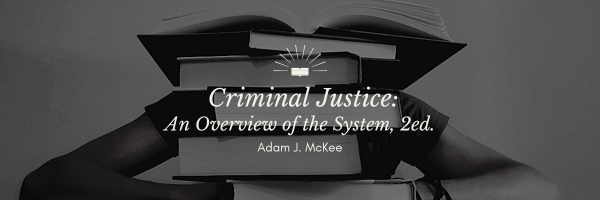One of the most important advantages of living in a civil society is the security that it provides. In contemporary society, the people have relegated the role of ensuring safety to the government. That is, citizens have a reasonable expectation that society, as a collective, will protect us from rogue members.
In giving power to the government to perform this critical security function, we create the potential to abuse that power. In the American criminal justice system, we see two competing and equally essential ideas: We demand security and freedom from governmental abuse of power. These freedoms are collectively known as individual rights or civil liberties. These civil rights are woven into the very fabric of our government at both the state and federal levels.
In this context, we can view the criminal justice system as a collection of rules and people (usually in public agencies) working together to protect the public from harm. Criminal justice texts commonly divide these into three broad categories: police, courts, and corrections. These three elements have the same primary function: To respond to crime. A crime violates some criminal law with no legal justification or excuse. Local, state, and federal governments can make criminal laws. The vast majority of criminal laws are a matter of state statutes.
Merely stating that the criminal justice system has the purpose of “responding to crime” results in a dramatically oversimplified view of how the system works. Every agency within the criminal justice system will agree that it responds to crime, but we find profoundly different mission statements, goals, objectives, and methods among these various agencies. A significant reason for these differences is that the public has several conflicting definitions of justice.
- Barron v. Baltimore (1833)
- Gideon v. Wainwright (1963)
- Powell v. Alabama (1932)
- McKeiver v. Pennsylvania (1971)
- Schall v. Martin (1984)
Student Learning Outcomes for Chapter 1
When you have finished this chapter, you will be able to:
SLO 1: Identify the components and processes of the U.S. criminal justice system, including law enforcement, courts, and corrections.
SLO 2: Compare the roles and decision-making powers of key actors across branches and stages of the justice system.
SLO 3: Explain how crime is defined, classified, and measured using various legal categories and data collection systems.
SLO 4: Describe the sequence of criminal justice procedures from arrest through corrections, including legal concepts and trial stages.
SLO 5: Analyze tensions between fairness, efficiency, and discretion in achieving justice and protecting civil liberties.
Last Modified: 04/11/2025

Hello;
I was introduced to you online textbook on Criminal Justice. I am very much interested in adopting the text for my fall classes in 2019. We have close to 300 students enrolled in our Introductory course in Criminal Justice. The text and powerpoint slides look excellent. Are there instructor materials available, such as a test bank for each chapter? I would very much like to review the test bank and implement it to our exixting course. I will be glad to pay for materials
I was looking online for free courses on criminal justice and so far i think i found what i was looking for
I’m really looking forward to this class. I prefer learning the truth than thinking I know the truth of how our Criminal Justice System works!
These short few paragraphs is already giving me an idea of the system in place I’m so open to learn more
Hi,
Just from reading the introduction has made me more curious about the beginning of the Criminal Justice side. Meaning ” Once a crime has been committed. How is it determined? Example: Rather to make an arrest. Do they just go off a complaint? What is the limit for civilian arrest/ detain if the see a crime being committed. I’m looking forward to getting more in depth with this class.
These few paragraphs has given me an in site to what is to come from the remainder of the course. Giving me insight on what to look forward to and use just in the passage to get a grasp.
This introduction of Criminal Justice open my mind, I can’t wait to lean more!
I’m very much looking forward to the information this course has to offer. Very interesting and necessary.
The introduction to criminal Justice has made me wonder and open my mind to think about different events.
The introduction to the criminal justice Class is definitely got me curious to see and learn the real truth about our criminal justice system
I’ve always admired and wanted to be in the Criminal Justice field since I was in elementary school. It’s been something that’s fascinated me all my life. I’ve witnessed a lot, been through a lot and have yearned to make a change. As well as wanting to learn and understand everything surrounding the field. Reading the introduction of this course just sparked my interest and imagination even more than I could imagine. I’m looking forward to learn everything and anything about the Criminal Justice field.
The last nine years I have had an interest in the Criminal Justice
System. I am even more intrigued by the laws. Even though I have only been in the Department of Corrections for nine years I am ready to explore the outs and ins of the career.
I’ve always admired and wanted to be in the Criminal Justice field since I was young. It’s been something that’s fascinated me all my life. I’ve witnessed a lot, been through a lot and have yearned to make a change. As well as wanting to learn and understand everything surrounding the field.
I have always dreamed and admired of Criminal Justice since I was young and this is now my real opportunity to fulfil my dreams here at PCC.
I am very happy to take this course, I have always loved Criminal Justice.
I’m super excited to learn more about this topic. I am very interested in this subject! 🙂